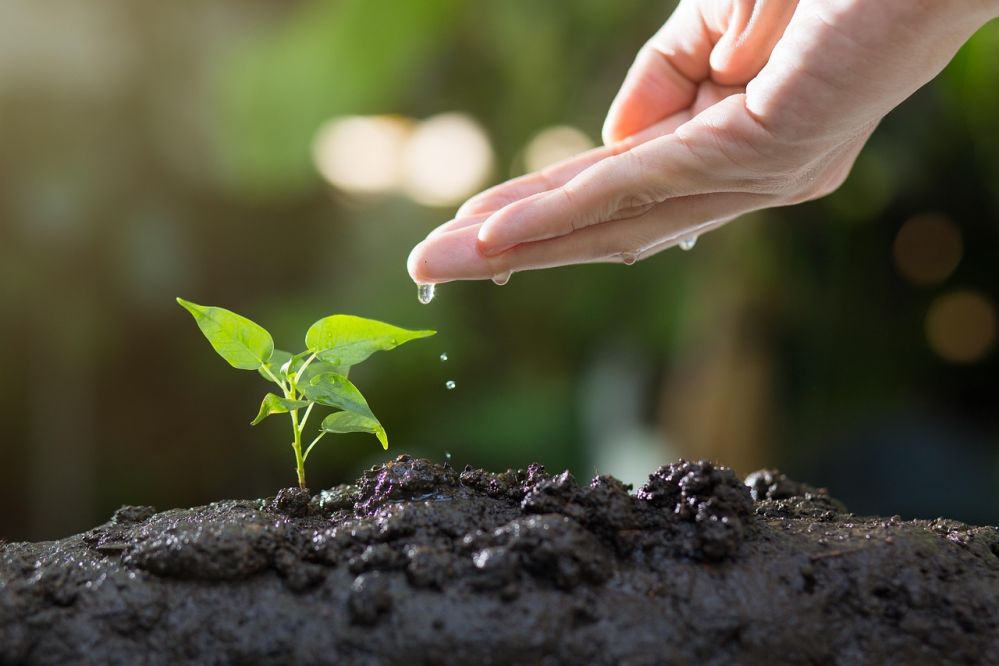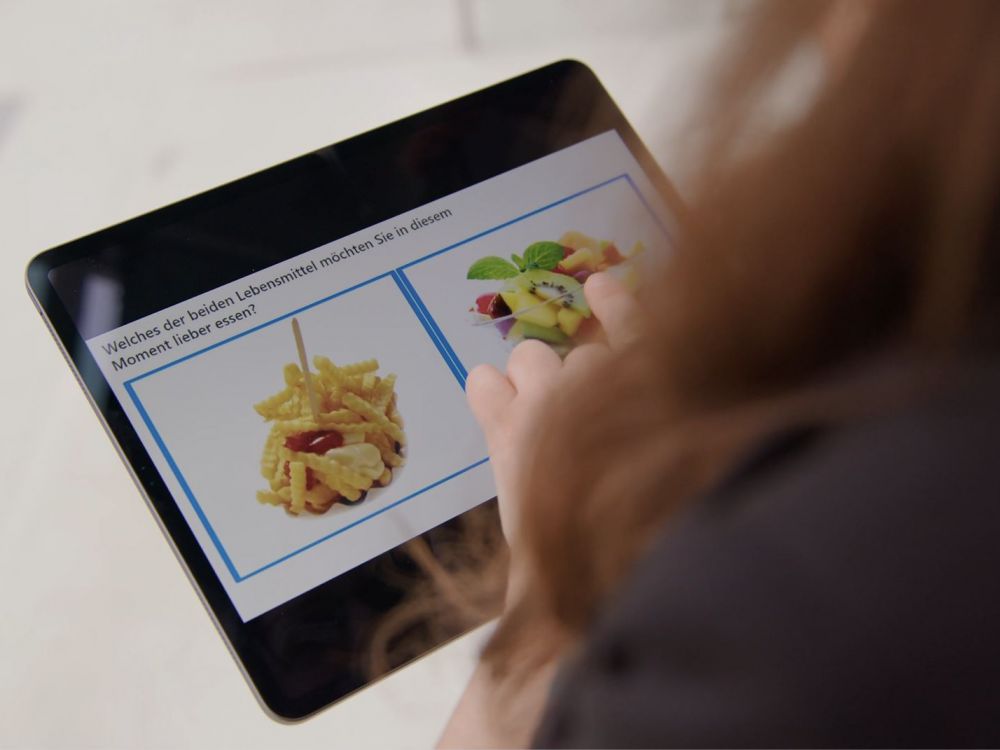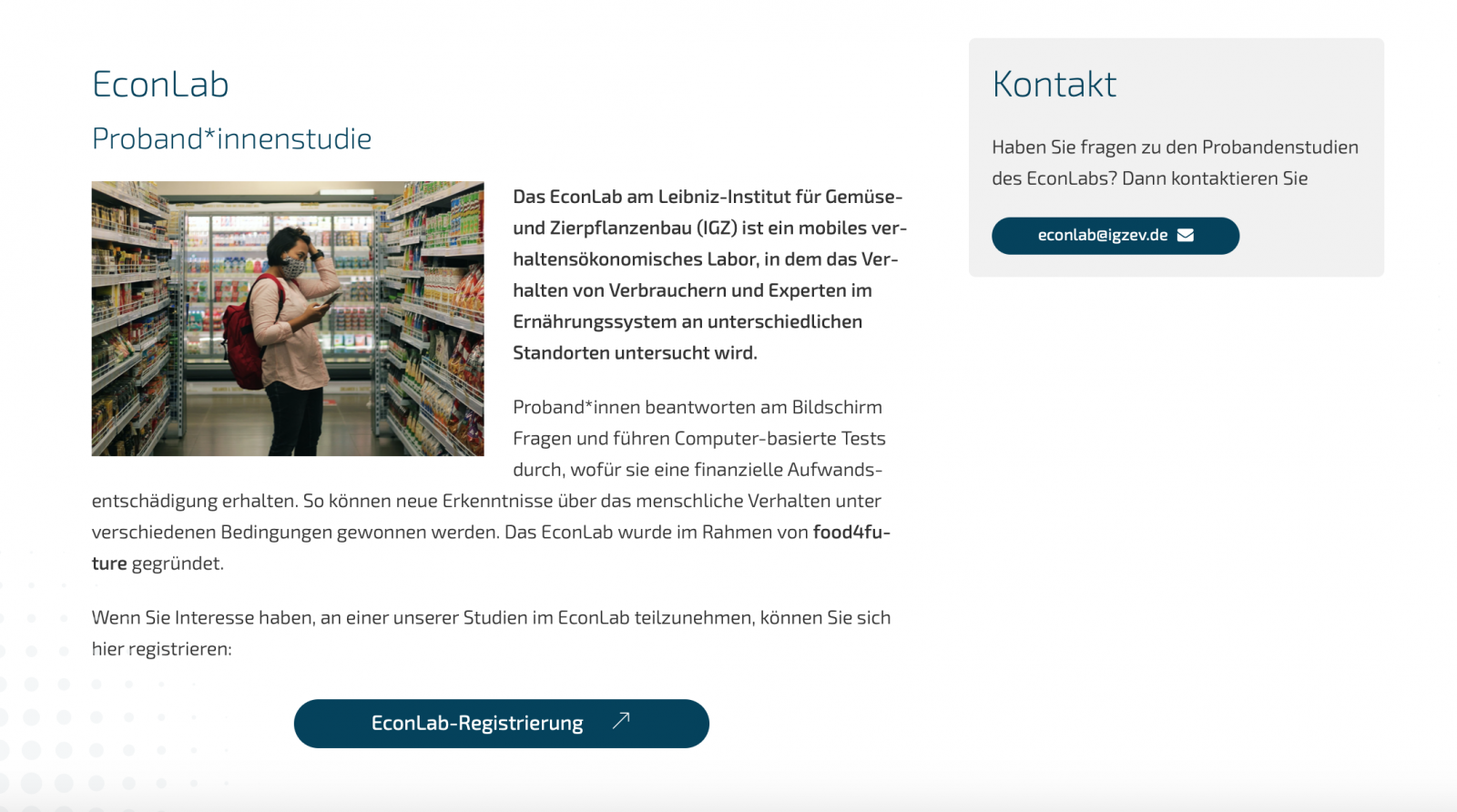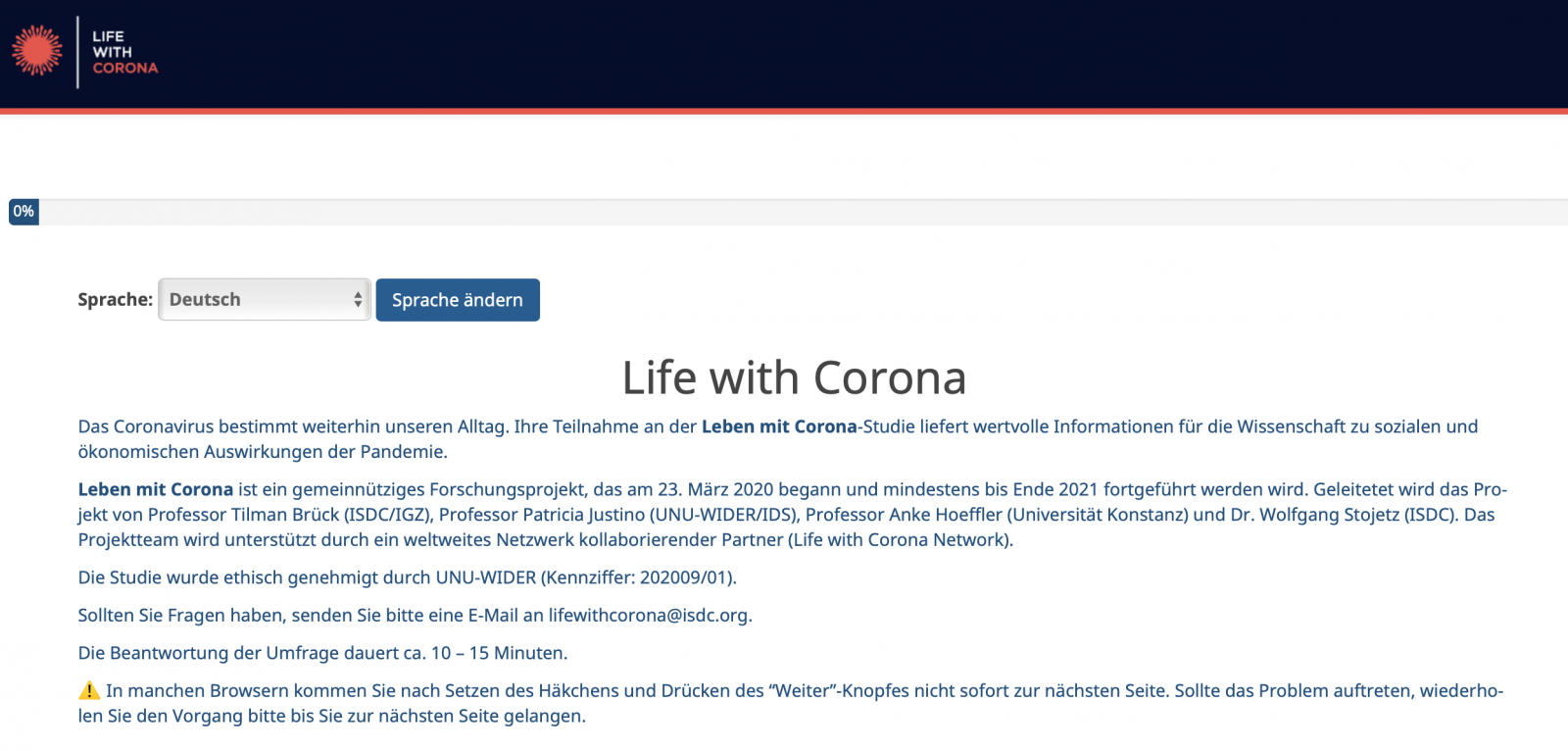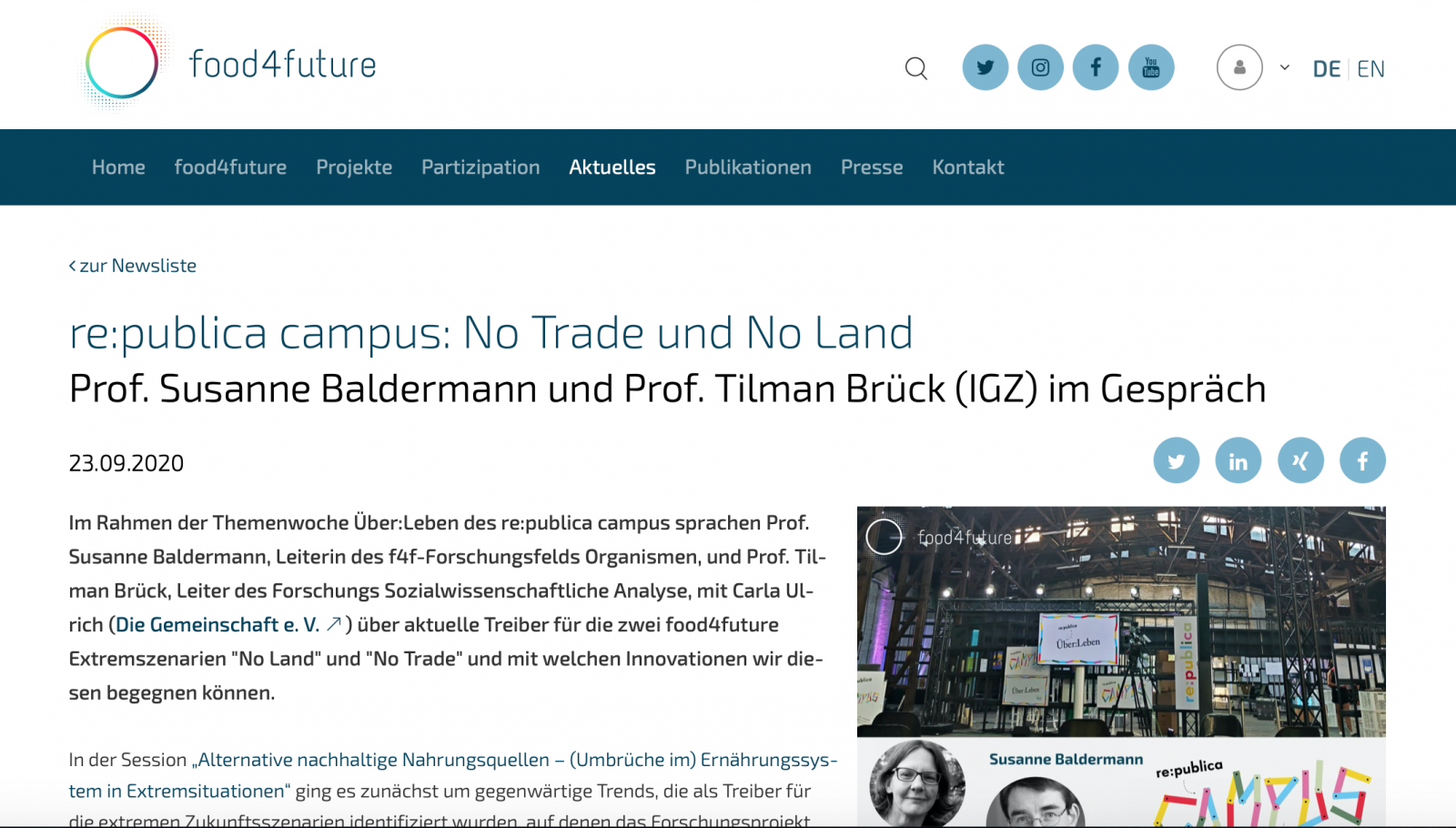Photo: Soil - Canva
This food4future project is dedicated to the question of how sustainable, economically viable, and socially relevant the newly developed indoor (co)cultivation systems are. The goal is to analyze the ecological impacts of the various cultivation systems, evaluate their economic viability, and investigate their acceptance in society. The focus is on resource utilization, environmental sustainability, and the economic opportunities that f4f indoor cultivation systems offer for future urban food production. This project is crucial to ensuring that food4future's innovative solutions are not only technologically sound, but also sustainable and practically feasible.
Important foundations were laid in the first project funding phase. Initial prototypes of the saline-based, urban f4f indoor cultivation systems were developed and their functionality tested. A focus was placed on the use of innovative technologies such as UVB LEDs and sustainable materials specifically developed for the cultivation of organisms such as macroalgae, halophytes, and insects. We also integrated waste streams into the saline organism cultivation system to evaluate the resource efficiency of the systems. The results showed that such systems offer great opportunities in urban areas to make the production of alternative food sources more resource-efficient and sustainable. At the same time, it became clear that the long-term environmental impacts and economic viability of the various f4f indoor cultivation systems require further detailed analysis.
In the second project funding phase, we are building on these findings and going a step further. The ecological impacts of the f4f indoor cultivation systems are now being investigated using comprehensive life cycle assessments. We are examining the entire life cycle of the various f4f cultivation systems, from the use of different saline water sources and waste streams, energy and nutrients, to the production of biomass and valuable ingredients. The goal is to determine how resource-efficient and environmentally friendly the f4f indoor cultivation systems really are. At the same time, the economic perspective is being analyzed to determine which process steps are particularly cost-intensive and how these can be optimized. We are working closely with our industrial partners to make the f4f indoor cultivation systems practical and scalable. We are also investigating the societal impacts: How do consumers, companies, and political decision-makers accept such innovative systems? These interdisciplinary approaches help us identify potential obstacles early on and develop solutions.
Langfristig sollen die Ergebnisse dieses Projekts dazu beitragen, die nächste Generation nachhaltiger Landwirtschaft zu gestalten. Die gewonnenen Erkenntnisse fließen in praktische Handlungsempfehlungen ein, die zeigen, wie f4f-Indoor-Kultivierungssysteme ressourcenschonender, wirtschaftlicher und gesellschaftlich besser integrierbar gestaltet werden können.
Contact
Leibniz-Institut für Agrartechnik und Bioökonomie e.V.
Max-Eyth-Allee 100
14469 Potsdam
Website
www.atb-potsdam.de
Project duration
Oktober 2024 - September 2028
Interaction with f4f & associated partners
IGZ, ZMT, UB
Hermetia Baruth GmbH, Algenland UG, Elea Technology GmbH, Leibniz-Innovationshof, Future Food Living Lab, CUBES Circle

Dr.-Ing. habil. Oliver Schlüter is coordinator of the "Quality and Safety of Food and Feed" research program and head of the "New Food Resources and Technologies" working group at ATB. His research focuses on the use of novel technologies in primary food production (fruit, vegetables, herbs, spices, meat, edible insects), the processing of fresh produce (high-pressure, plasma, etc.), and the non-destructive monitoring of quality and safety aspects (fluorescence image analysis, flow cytometry, etc.).

Marios Psarianos studied chemical engineering at the National Technical University of Athens and completed his thesis under the supervision of Prof. Petros Taoukis on the utilization of olive oil by-products using high pressure and pulsed electric fields to extract high-quality ingredients. As a PhD student at ATB, his focus is on the production and isolation of food ingredients (proteins, fat, vitamins, chitin) from edible insects.
Stojetz W., Ferguson N.T.N., Baliki G., Díaz O.,Elfes J., Esenaliev D., Freudenreich H., Koebach A., Abreu L., Peitz L., Todua A., Schreiner M., Hoeffler A., Justino P., Brück T. (2022). The Life with Corona survey (Social Science & Medicine)
doi:10.1016/j.socscimed.2022.115109
Freudenreich H., Aladysheva A., Brück T. (2022) Weather shocks across seasons and child health: Evidence from a panel study in the Kyrgyz Republic. World Development Vol. 55.
doi:10.1016/j.worlddev.2021.105801
Abreu, L., Koebach, A., Díaz, O., Carleial, S., Hoeffler, A., Stojetz, W., Freudenreich, H., Justino, P. and Brück, T. (2021). Life With Corona: Increased Gender Differences in Aggression and Depression Symptoms Due to the COVID-19 Pandemic Burden in Germany. Front. Psychol. 12:689396.
doi:10.3389/fpsyg.2021.689396
Freudenreich H., Demmler K. M., Fongar A., Jäckering L. (2020). Effective interventions to increase food and nutrition security in response to Covid-19. Policy Brief: Bundesministerium für wirtschaftliche Zusammenarbeit (BMZ) und Entwicklung und Deutsches Evaluierungsinstitut der Entwicklungszusammenarbeit (DEval).
Download PDF
